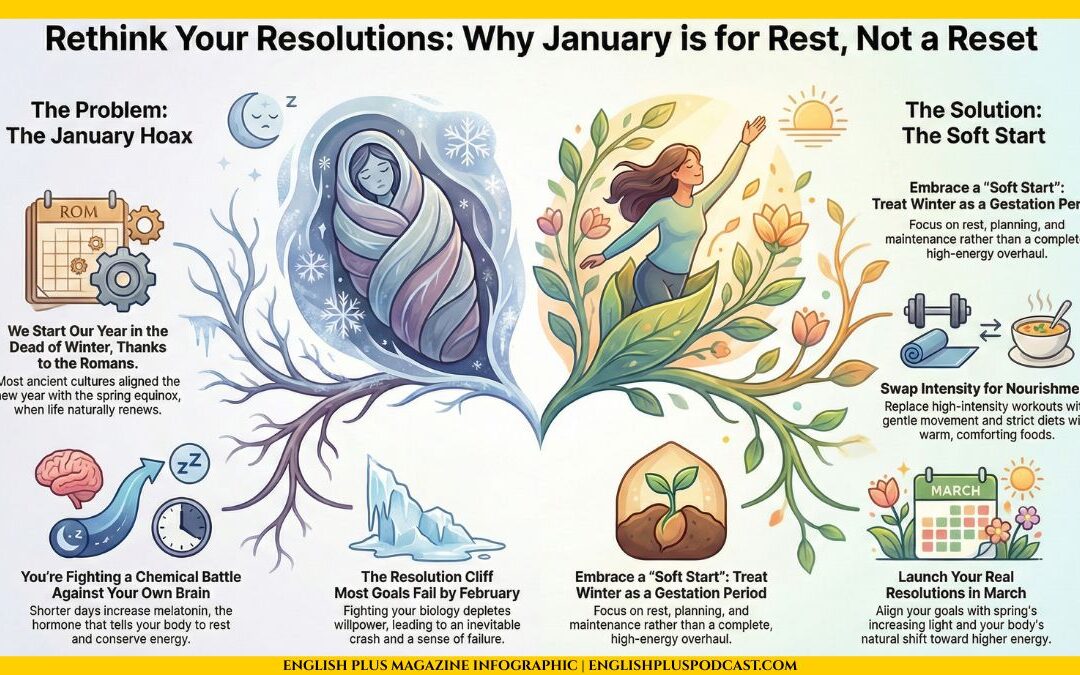Hello and welcome. If your goal is to achieve excellence in a major English proficiency exam, you know that being able to discuss complex social issues is a critical skill. This lesson is designed to equip you with the advanced grammar needed to do so with nuance and clarity.
Our approach is straightforward and effective. First, please read the following 1000-word text on the profound effects of social inequality. Concentrate on the arguments and examples. After you have a firm grasp of the content, we will meticulously analyze the grammatical structures that give the text its power. Let’s explore this vital topic together.
The Unlevel Playing Field: How Social Inequality Curbs Potential
Social inequality, the uneven distribution of resources and opportunities across a society, is one of the most persistent and corrosive challenges confronting the modern world. It is not merely a matter of some individuals having more wealth than others; rather, it is a structural phenomenon that systematically limits the life chances of entire segments of the population. Were a child’s future prospects determined solely by their innate talent and effort, we would live in a true meritocracy. The unfortunate reality, however, is that the circumstances of one’s birth—be it their family’s income, their race, or their geographic location—remain stubbornly powerful predictors of their success.
The impact of this disparity begins at the very earliest stages of life. A child born into an affluent family is likely to have access to superior nutrition, a more stimulating early-years environment, and high-quality preschool education. In contrast, a child from a low-income background may face food insecurity and live in a neighbourhood with fewer safe places to play and under-resourced childcare facilities. This initial gap in developmental opportunities often widens over time. While the privileged child attends a well-funded school with experienced teachers and a wealth of extracurricular activities, the less-privileged child might be in an overcrowded classroom with outdated textbooks. It is this divergence in foundational education that lays the groundwork for future inequality.
As individuals transition into adulthood, these disparities become even more pronounced, particularly concerning access to higher education and the labour market. The student from a wealthier background can often afford university without accumulating crippling debt; moreover, they can leverage family connections to secure prestigious internships. On the other hand, a student from a poorer family, even one with exceptional academic talent, might be deterred by the high cost of tuition or may have to work multiple jobs, thereby compromising their studies. If they had had the same financial security and social network, their career trajectory could have been vastly different.
Social inequality also manifests in healthcare, creating stark differences in both life expectancy and quality of life. Affluent communities tend to have better access to hospitals, specialist doctors, and preventative care. They can afford healthier food and gym memberships. Conversely, those in poorer areas often live in ‘food deserts’, rely on overburdened public health services, and are more exposed to environmental pollution. The chronic stress associated with financial instability further exacerbates health problems, creating a vicious cycle where poor health impedes one’s ability to work, thus deepening poverty.
It is crucial to understand that these are not isolated issues but interconnected systems. The lack of educational opportunity limits job prospects, which in turn restricts access to good housing and healthcare. This perpetuates a cycle of intergenerational poverty that is incredibly difficult to break. What is often misunderstood is that the effects of such inequality are not confined to the disadvantaged. Societies with high levels of inequality tend to experience lower levels of social trust, higher crime rates, and greater political instability, which ultimately affect everyone. The societal fabric itself begins to fray when a large portion of the population feels that the system is rigged against them.
Addressing this monumental challenge requires concerted action on multiple fronts. Policies aimed at increasing the minimum wage, investing in public education in disadvantaged areas, and implementing a more progressive tax system are essential first steps. Furthermore, initiatives that seek to tackle systemic discrimination and bias are vital. It is not enough simply to provide equal opportunities; we must also strive to ensure equitable outcomes, recognizing that different individuals may need different levels of support to reach the same starting line. Ultimately, a society that fails to harness the talents of all its citizens, regardless of their background, is not only unjust—it is also squandering its most valuable resource: its human potential.
Grammar Analysis: Let’s Break It Down
Discussing a topic like inequality requires careful and precise language. Let’s delve into some of the grammatical structures that helped build the arguments in the text.
[ppp_patron_only level=5]
1. Unreal Conditionals (Second and Third)
“Were a child’s future prospects determined solely by their innate talent and effort, we would live in a true meritocracy.“
“If they had had the same financial security and social network, their career trajectory could have been vastly different.“
- What are they? These sentences talk about hypothetical situations that are not true.
- The first example is a Second Conditional (if + past simple, …would + base verb), used for unreal situations in the present or future. It’s inverted for formality (Were…determined instead of If…were determined), which makes it very high-level. It describes a present fantasy: the world is not a meritocracy.
- The second example is a Third Conditional (if + past perfect, …would/could have + past participle), used for unreal situations in the past. It looks back at the student’s past and imagines a different outcome that did not happen.
- Why use them? They are absolutely essential for exploring consequences and alternatives. When discussing social issues, you often need to imagine how things could be or could have been different to highlight a problem.
- Common Mistake: Mixing up the forms. A classic error is “If I would have known…“. Remember, the ‘if’ clause in a third conditional uses the past perfect (had known), not would have.
2. Contrastive Linkers and Structures
“In contrast, a child from a low-income background may face food insecurity…“
“On the other hand, a student from a poorer family… might be deterred by the high cost of tuition…“
“While the privileged child attends a well-funded school…, the less-privileged child might be in an overcrowded classroom…“
- What are they? These are words and phrases used to set up a direct comparison and highlight differences. In contrast and On the other hand are adverbial phrases that typically start a sentence, followed by a comma. While (and whereas) is a subordinating conjunction that connects two contrasting clauses within one sentence.
- Why use them? Discussing inequality is all about contrast—the rich vs. the poor, the privileged vs. the disadvantaged. Using a variety of these linkers is the most effective way to structure your arguments and make the disparities crystal clear. It creates a rhythm in your writing, moving back and forth between two realities.
- Pro Tip: Don’t just rely on “but”. Using more sophisticated linkers like these will significantly elevate the quality of your writing.
3. Use of Abstract Nouns
“The unfortunate reality, however, is that the circumstances of one’s birth…remain stubbornly powerful predictors of their success.“
“Societies with high levels of inequality tend to experience lower levels of social trust, higher crime rates, and greater political instability…“
- What are they? Abstract nouns are words for ideas, qualities, and concepts that you cannot physically touch (e.g., inequality, opportunity, success, trust, instability, reality, security).
- Why use them? Writing about complex social issues requires moving beyond concrete examples to discuss overarching concepts. Using abstract nouns allows you to summarize complex situations and talk about trends and ideas. Mastering their use, often in combination with prepositions (e.g., lack of opportunity, distribution of resources), is a key feature of academic and formal English.
- How to practice: When you learn a new adjective (unequal) or verb (succeed), also learn the abstract noun form (inequality, success). Try building sentences around these noun forms.
4. Cleft Sentences for Emphasis
“It is this divergence in foundational education that lays the groundwork for future inequality.“
“What is often misunderstood is that the effects of such inequality are not confined to the disadvantaged.“
- What are they? Cleft sentences are used to split a single clause into two parts to emphasize a particular piece of information. They often start with It is/was… or What….
- The first example emphasizes this divergence in foundational education. We could just say “This divergence… lays the groundwork,” but the cleft structure makes the cause more emphatic.
- The second example emphasizes the point of misunderstanding. It’s more powerful than saying, “People often misunderstand that…”
- Why use them? They are a fantastic tool for drawing your reader’s attention to the most important point in your sentence or argument. They are very common in spoken English and add a natural, persuasive rhythm to your writing.
Summing Up and Your Next Steps
In this session, we’ve focused on the grammar of social commentary. We’ve explored how hypothetical conditionals allow us to question reality, how contrastive linkers draw sharp comparisons, how abstract nouns help us discuss big ideas, and how cleft sentences add emphasis.
These are the structures that allow you to move from simply describing a situation to analyzing it critically. Your challenge is to start integrating them into your own work. The next time you have an opinion, try phrasing it as a cleft sentence. When you compare two things, use “while” or “in contrast”. Imagine an alternative past or present using a conditional. By consciously practicing these forms, you will develop the sophisticated grammatical range required to ace your exam and communicate complex ideas with power. Keep up the great work!
[/ppp_patron_only]










0 Comments